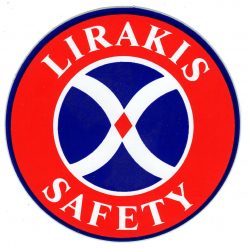America’s Cup boats don’t agree on safety changes
SAN FRANCISCO – Two weeks before the launch of the first America’s Cup race, competitors continue to quarrel about new safety rules put forth in the wake of last month’s training fatality.
The primary stalemate involves changes to the overall weight and rudder dimensions – so-called “class rules” — of the turbo-charged multihull AC72s, which when foiling can reach speeds of nearly 50 mph.
“It’s just frustrating when you’re literally thirteen days away from starting the first race and you could be forced to actually make changes to the equipment, which if you are making design-related decisions should have happened a year ago,” said Dean Barker, skipper for Emirates Team New Zealand, in an interview with USA Today Sports on Thursday.
Team New Zealand is one of three boats competing in the Louis Vuitton Cup, a series of races to determine who will face off against the defender, Team Oracle USA, in September. The other two challengers are Italy’s Luna Rossa Challenge and Swedish-based Artemis Racing.
The four teams have agreed to most of the 37 recommendations issued following the training death of British Olympian Andrew Simpson. The Artemis crew member apparently drowned when the team’s AC72 nose-dived and broke up, trapping him underneath.
But two members of an international jury brought into San Francisco last week to resolve the impasse were unable to reach a consensus on every issue.
“I want to thank the mediators for their work, as the process was beneficial,” Regatta Director Iain Murray said in a statement Saturday. “It was useful to hear the teams’ perspective on safety from a competitive viewpoint. But as Regatta Director, I have a clear task. For me, safety means safety for everyone. Full stop. I stand behind all of the original recommendations to increase safety for all of our sailors this summer.”
Time is short. And with the first race to set to begin July 7, pressure is mounting.
Acceptance of the recommendations is essential to obtain a permit from the U.S. Coast Guard, which has ultimate authority in San Francisco Bay. Without a permit, the races cannot take place.
Organizers said the permit should be issued next week, but if teams still have problems with the language of the changes, they can appeal to a full five-person jury, which has final dispute-resolution power.
Small design changes can have a significant effect on performance.
While the Cup defender sets boat design guidelines, room remains for modifications. Tweaks to weight and aerodynamics in races that last less than 30 minutes can spell victory or defeat.
The changes to the original race protocol call for increased weight of 100 kilograms (220 pounds) and alterations to the rudder.
According to Team New Zealand’s Barker, a veteran of several America’s Cup races during the past two decades, the latest suggestions “aren’t necessarily purely safety related.”
“We’ve designed our boat according to what the class rule was,” he explained. “We made compromises in our design decisions. We provided a boat that was safer but maybe not faster across a wide array of conditions. We don’t feel that it’s right that we should pay a penalty for making those decisions when we did.”
Tom Ehman, vice commodore for the Golden Gate Yacht Club, the holder of the Cup, said in a phone interview he was “cautiously optimistic” the issues would be wrapped up in time.
“It’s horse trading,” Ehman said. “It’s like trying to pass a bill through Congress.”
Meantime, the teams from New Zealand, Luna Rossa and Oracle have been out on the bay honing their boats and sharpening their crews.
Artemis, which considered pulling out of the regatta, has been training in smaller 45-foot catamarans while their second AC72 is being readied for a return to the water.
A spokesman for Luna Rossa declined to comment on its preparations pending the outcome of the mediation. Artemis did not immediately respond to questions emailed Friday.
Promised to showcase sailing for the “the Facebook generation, not the Flintstones generation,” according Team Oracle billionaire owner Larry Ellison, the 34th edition of the oldest major international sporting event has been beset by financial woes, safety concerns and last-minute format changes.
The prohibitive costs of the technically demanding multihull AC72s with their 13-story sails have raised concerns about the risks and left a much smaller field than was originally expected. At the last full America’s Cup in Valencia, Spain, six years ago there were 11 challengers.
Oracle Team chief executive Russell Coutts said in an interview last week that to ensure success future Cups would need smaller boats and lower costs.
“That’s pretty much unanimous,” Coutts said. “Everyone sees that now.”
More immediately, the teams need to see eye to eye.
